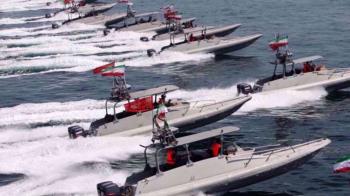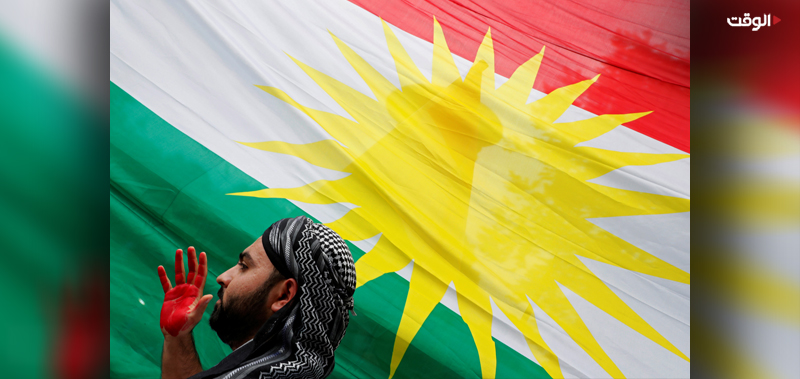Alwaght- Turkey’s military intervention in various countries under such pretexts as countering security threats and supporting its allies is a long story and its continuation with expansionist goals now is a source of challenges to West Asia region. The Turkish military adventures in recent years, in fact, has turned Ankara into a revisionist actor in the security and political order of the region from Caucasus and Central Asia to West Asia and North Africa. The significant issue is that the Turkish will to deepen its strategic depth in the region is gradually shifting from a soft mode to a wish to change the geographical borders, in a way that the other actors accuse Ankara of territorial expansionism, especially in relation to the neighbors.
Iraq is one of Turkey's important neighbors, which in recent years has been the target of a wave of large-scale military operations deep into its territory and violating its territorial integrity.
Turkey has been launching operations against PKK terrorists' positions in northern Iraq since 1980s.
In 1983, 1986 and 1987, Turkey received Baghdad's consent for its cross-border operations. A security pact signed in October 1984 allowed the two sides to conduct cross-border operations for a maximum of three days at a depth of 10 kilometers. The pact allowed Turkish forces to launch military operations 5 kilometers deep into the Iraqi territories without prior permission from Baghdad.
The agreement expired in 1988 and was not extended, but Turkey resumed operations in 1991 without Baghdad's consent, as Baghdad lost control of Kurdish-majority north after the first Persian Gulf War. Turkish defense and security officials say the main goal of their attacks in northern Iraq is to repel PKK militants from Turkish borders. At the same time, using economic leverage, Ankara established closer ties with the Kurdistan Democratic Party (KDP), which dominated the autonomous Kurdish region, and established a permanent and growing military presence there. In fact, immediately after Kurdistan gained its practical autonomy in the region in 1991, the KDP and its rival Patriotic Union of Kurdistan (PUK) sided with Turkey in attacking PKK bases despite their rivalry. The KDP has shown that it is a more enthusiastic partner to Turkey.
From Operation Claw-Eagle to Claw-Lock, Turkey dreaming of stay
In recent years, Turkey continued its incursions into northern Iraq under anti-PKK fight excuse, but sought expansion with establishment of large number of outposts.
The Turkish army's "Claw" operations in the territory of Iraqi Kurdistan have been carried out in stages since mid-2019. Recently, Defense Minister Hulusi Akar announced the latest phase of the operation, Operation Claw-Lock, which he said sought to block the remaining PKK routes to the Turkish border in areas such as Gara, Basta, Avashin, Zap, and Khawark, Haftanin through to towards Qandil Mountains.
"I want everyone to hear: our president ordered, preparations are underway," he said, adding: "We will attack Manbij and Tell Rifat, and by the God's will, we will eliminate the terrorists before the 100th anniversary of the establishment of the Republic of Turkey. Our task is to cleanse Qandil Mountains before October 29, 2023, and to raise the crescent and star flags above those terror nests."
Turkey is seeking to expand its network of bases and checkpoints across its border with Iraq to areas such as Hakurk, Haftanin, Matina, Zap and Avashin-Basyan, where the old PKK camps are located. The latest round of military operations has focused on Zap, Matina and Avashin-Basyan, which is the last piece to complete a security buffer zone at a depth of 25-30 kilometers.
In July last year, Turkey said it set up 37 outposts, some of them 30 kilometers from the border and into Iraqi territory. It says it builds more and connects the routes.
Erdogan-Barzani's joint plan
While the Turkish military presence in the Kurdish region is increasingly taking a occupational and expansionist nature, the meaningful silence of Kurdish leaders and visit of the Kurdistan Regional Government (KRG) President Nechirvan Barzani and Prime Minister Masrour Barzani to Ankara shortly before the latest Turkish operation reveal joint plans not disconnected from the regional and global developments.
Known for his opportunist approach to take advantages from international crises to advance his militaristic policies in Syria, this time, too, Erdogan trying to fish in the troubled waters of Ukraine war. Amid the Western sanctions on Russian energy sector for military operation in Ukraine, which makes Europe seek new suppliers, Turkey intends to use this situation to upgrade its place in the world's energy geopolitics. A clear example is advancing the Trans-Caspian project which is part of the southern corridor to transfer Turkmenistan gas to Europe. This semi-active pipeline, passing under the Caspian Sea, delivers Turkmenistan gas through Azerbaijan, Georgia, Turkey, and Greece to Europe. However, this pipeline faces important challenges, such as disagreements among the five Caspian coastal states over the legal regime of the Caspian Sea, Iranian and Russian opposition because of the environmental damages this pipeline can leave, and competition between the projects of Azerbaijan and Nabucco gas projects. Meanwhile, transfer of gas from the southern borders of Turkey, namely Iraqi Kurdistan region, to Europe has become one of the most accessible ways for gas transfer in the eyes of the Turkish leaders.
Now, we can interpret the new round of massive attacks on northern Iraq a month after the start of Ukraine war and full coordination of the KRG leaders with Ankara from a new perspective. Masrour Barzani, who is the son of the former Kurdistan president Masoud Barzani, at Abu Dhabi energy conference for the first time claimed on March 28 that the Iraqi Kurdistan region would soon start gas supplies to Europe.
The Modern Diplomacy outlet, citing global data, estimates that the Kurdistan Region's natural gas reserves are about 3 trillion cubic meters, or 2 percent of the world's reserves. The largest Iraqi gas fields are Khor Mor and Chamchamal in the Kurdish region. Dana Gas company of the UAE, which signed agreements with Erbil to produce gas in the two gas fields, plans to increase production in the Khor Mor to 700 million cubic meters by 2023. Turkey will be the main destination for Kurdistan's gas exports.
Certainly one of the most important challenges in implementing this plan is Baghdad's opposition and the Iraqi Federal Court's ruling that Kurdistan's control over its gas and oil resources is illegal, and that Baghdad should gain their control.
Now the question is whether Erbil would see Baghdad a serious obstacle ahead of its gas exports if it gets full American support and even investment in gas sector and on the other hand Erdogan gives it a green light for the pipeline security and even military support in the face of Baghdad threats.
The substantial Turkish military campaign in northern Iraq should been seen driven by dangerous and expansionist objectives meant to undermine the Iraqi sovereignty for long-term presence in the country, with consequences including unsettling the regional stability.



























